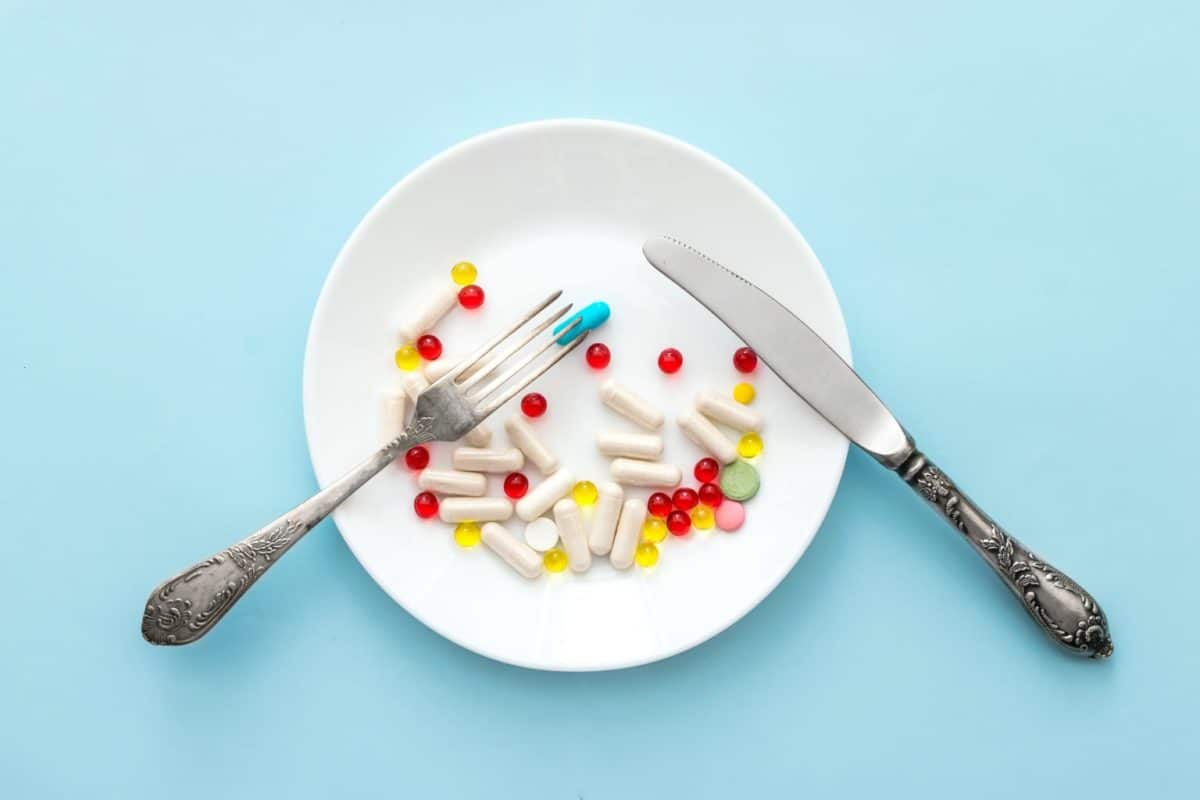Table of Contents
Like aromatherapy and phytotherapy, supplements based on pure mushrooms (many considered novel foods) are classified as food supplements.
As such, there is a specific European and national regulatory framework that regulates the formulation, marketing, labelling and advertising of these products.
Currently, as is the case with phytotherapy, no declaration of its properties is authorized on its labelling.
Because? Can this situation change? We analyze it in the following lines
REGULATIONS ON FOOD SUPPLEMENTS
To understand why health claims are not currently added to mushroom-based supplements, we must talk about novel food and the regulations that apply at the European level.
PURE MUSHROOMS, A SPECIAL CASE
In Europe, products made from pure mushrooms are considered food supplements. At the same time, EU Member States transpose European regulations at national level, which implies slight variations. In Spain, for example, mushrooms are considered “special cases”.
In other words, the specific regulatory texts of phytotherapy apply to mushrooms if it is recognized that their use is not novel in food supplements within the meaning of Regulation (EU) n°2015/2283 known as the “Novel Food” Regulation.
THE NOVEL FOOD CONCEPT
In force since January 1, 2018, the “Novel Food” Regulation applies throughout the Union. This means that all foods consumed by humans to a negligible extent in the EU before 15 May 1997 are covered by this regulation.
As you may have deduced, the consumption of most mushrooms in Europe falls under this regulation. Generally speaking, mushroom mycelium are considered new foods. Therefore, before mycelia can be placed on the EU market, the regulation requires a safety assessment. Currently, only Shiitake and Cordyceps sinensis mycelia are authorized in the EU.

ALLEGATIONS OF FOOD SUPPLEMENTS
Health claims may appear on the labelling or advertising of food products. Some functional foods use them, but they mainly refer to food supplements.
This is any word, image or symbol that states, suggests or implies the existence of a relationship between a category of food products, a food or one of its components and health.
A well-known example is vitamin C: about this component and under certain conditions, for example, it is possible to say: “it contributes to the functioning of the immune system.”
Health claims attribution process
As part of the process, the declarations are first evaluated by a group of experts from the EFSA (European Food Safety Agency). To do this, the applicant provides data that supports the writing of the declaration presented to the commission. Scientific and safety evaluations are then carried out. This work helps ensure that the allegations studied are well founded and accurate.
If the verdict is positive, there is a good chance that the ingredient claim will be available for commercial use. On the other hand, a negative verdict usually prevents the declaration from being used, for several reasons:
- too vague
- whose relationship with health is unclear
- the ingredients of the formula are not sufficiently defined
- when scientific data does not support the claim being made.
It must be taken into account, however, that EFSA opinions are merely advisory, and that it is the European Commission that decides whether or not to publish a new regulation.
If you are interested in consulting the results of the EFSA evaluations, you can consult the Commission’s website here.
WHY ADD HEALTH CLAIMS?
The existence of health claims is beneficial for everyone:
- For the consumer, they help guide and facilitate the choice among the plethora of products offered,
- provide unbiased health information
- They guarantee healthy competition between operators in the sector
- They guarantee the proper functioning of the internal market.
However, this information must be clear to the consumer. The ESFA periodically evaluates applications and publishes the results in a journal.

HEALTH CLAIMS AND SUPPLEMENTS
ONGOING AND PENDING ALLEGATIONS
Only a small number of claims have received a favorable opinion from EFSA. Of the 4,637 applications, only 229, mainly relating to vitamins or minerals, have been accepted.
Of this list, some 1,550 applications relating to plants are awaiting a decision by the commission. Some mushrooms are on this to-do list:
- Reishi ( Ganoderma lucidum ): “contributes to natural defenses” and “helps maintain circulatory functions.”
- Sun mushroom ( Agaricus blazei ): “helps natural defenses”, “contributes to a normal immune response”, “promotes the immune system”, “promotes the human complement system”, “is rich in beta-glucans that contribute to immune activity”, “helps the body to resist biological aggressions”.
This suspension is explained by the need to evaluate the application of the regulation for plants and mushrooms. The question also arises whether tradition can be taken into account in the scientific evaluation to justify the health effects of these products.
In May 2020, the conclusions of the evaluation indicate that there are implementation difficulties, especially in the criteria for evaluating the claims. We are still waiting for clarifications from the Commission on this issue.

ALLEGATIONS PRESENTED
Between 2009 and 2011, a large number of health claims related to mushrooms were submitted to EFSA, but have not yet been approved.
The reasons for these rejections are all related to the need to provide more scientific evidence to the commission with the application. At the moment they are pending approval:
- Cordyceps (Cordyceps sinensis): “helps strengthen the body, stimulates the immune system”, “invigorates the body”, “promotes the body’s alertness”, “increases performance and resistance during intense exercise or physical activity ”,
- Reishi (Ganoderma lucidum): “stimulates the tired body”,
- Maitake (Grifola frondosa): “contributes to the body’s natural defences”, “controls blood sugar levels”,
- Shiitake (Lentinula edodes): “contributes to natural defenses”,
- Oyster mushroom (Pleurotus eryngii): “regulates the physiology of the pancreas and fat metabolism,”
- Oyster mushroom (Pleurotus ostreatus): “contributes to natural defences”, “antioxidant”.
This large number of non-EFSA-approved health claims is not unique to mushroom-based supplements. For example, in 2009, no health claims relating to herbal medicine received a favourable evaluation.

EVALUATION PROCEDURES
The Commission’s assessment of scientific evidence is similar to that of medicines. Therefore, it is very difficult for a dietary supplement to demonstrate a beneficial clinical effect in healthy people.
EFSA recognizes that the lack of adequate studies in humans remains one of the main reasons for rejecting applications for authorization of claims. That is why it suspended the evaluation of health claims for pure plants and mushrooms in 2010.
Another reason there are few health claims on supplements is the cost of claims. According to Synadiet (the French food supplement trade association), applying for a health claim costs between €500,000 and €1,000,000. This cost is too high for most companies in the sector.
THE EXISTENCE OF HEALTH CLAIMS IN MUSHROOM-BASED SUPPLEMENTS
If you think about it, you’ll remember seeing claims in the advertising or labeling of mushroom supplements, and it’s quite likely.
AN ALLEGATION LINKED TO ANOTHER COMPONENT
As we have seen before, the majority of health claims currently accepted by the European Commission refer to vitamins and minerals. Therefore, if mushroom-based products incorporate these substances in their formulation and meet the adhesion conditions, it is possible to claim the associated effects. The statement you have seen does not actually refer to the mushroom, but to a component of its formulation (vitamin, zinc, etc.).
A CLAIM AWAITING TRIAL
As you already know, there is a waiting list of around 1,550 health claims for plant substances (including mushrooms). Pending a final decision, these allegations may continue to be used.
THE FUTURE OF MUSHROOM SUPPLEMENTS
Finally, if the costs, the level of demand and the risks of an application being rejected are taken into account, it is clear that innovation in mushroom-based supplements, especially novel food, is going to be complicated.
Like the phytotherapy sector, we are very attentive to what the European Commission decides on future control procedures for health claims. We will be sure to promptly inform you of any news in this regard.
Despite these difficulties in obtaining recognition, we continued investigating. At Hifas da Terra we know the benefits of mushrooms and we allocate an important part of our profits to research and the implementation of innovation and clinical projects that help obtain new claims for our products. However, the road is long. At the same time, we are pleased to see that the mushroom supplement industry has seen unprecedented scientific growth over the past ten years.
Although clinical studies (in humans) remain scarce. There is no doubt that, in the coming years, public and private research will have provided evidence that meets EFSA’s demands.
Discover HIFAS RANGE
Discover the Hifas da Terra range of Medicinal Mushrooms for your health.
WE RECOMMEND

Linoleic Acid: Why This Essential Omega-6 Is Vital for Your Health
☑️ Linoleic acid is a polyunsaturated omega-6 fatty acid essential for human health, as the body cannot synthesise it and must obtain it through diet. This fatty acid plays several critical roles, including supporting skin integrity, contributing to the formation of cell membranes, and serving as a precursor to important bioactive compounds. Its anti-inflammatory properties and role in maintaining the skin barrier make it particularly beneficial for skin health. Understanding the importance of linoleic acid and ensuring adequate intake can significantly impact overall well-being.

Are all red mushrooms toxic?
Red mushrooms are often perceived as toxic, but sometimes other properties are also recognised. Let’s discover them together in this post.

